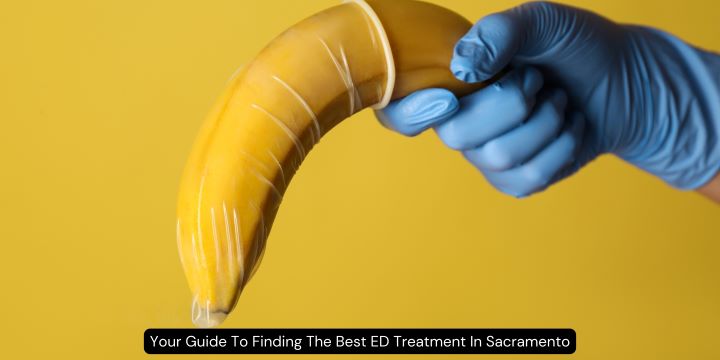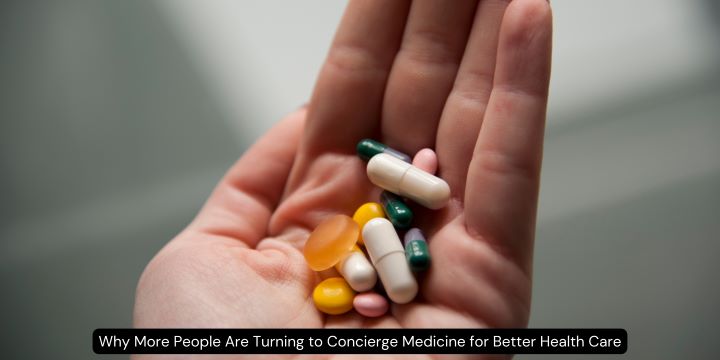Key Takeaways
- ED is a common issue affecting many men, and there are various treatment options available.
- Consulting a specialist can help determine the most suitable treatment based on individual needs.
- Both medical and lifestyle changes can contribute to effective ED management.
What Is ED?
Erection dysfunction (ED) is the inability to get or keep an erection firm enough for sexual engagement. Men of all ages can be affected by it, but older men are more likely to experience it. The National Institutes of Health said that over 30 million men in the US suffer from ED. In addition to being a sign of health concerns, persistent ED can also be a factor in stress, marital troubles, and low self-esteem. Many people seek a urologist in Sacramento for ED to handle their condition professionally and discretely. Understanding ED starts with recognizing that it is medically treatable and often preventable. The first step in effective treatment is evaluation by a healthcare professional specializing in this area. Sacramento residents can access knowledgeable specialists equipped to offer personalized care and treatment plans. Educating oneself about the condition and the available treatments can significantly impact one’s approach to managing it.
Common Causes Of ED
Many factors, both physiological and psychological, might contribute to ED either independently or in combination. Obesity, diabetes, high blood pressure, and heart disease are typical physical factors. Many disorders that affect blood flow or nerve activity can make it challenging to get or keep an erection. Stress, worry, despair, and other psychological variables can either induce or worsen ED, creating a vicious cycle of dysfunction and distress. A healthy lifestyle and stress-reduction strategies can assist in mitigating these consequences.
Furthermore, bad lifestyle choices, including smoking, binge drinking, and inactivity, can exacerbate ED. Taking on these practices could be a preventative measure and a therapeutic alternative. Sometimes, ED can also be a sign of underlying medical issues that need to be treated. Consequently, recognizing
Talking To Your Doctor
Having a conversation with your doctor is the first step in addressing ED. Honest communication about your symptoms and concerns can pave the way for effective treatment. Studies show that only about 25% of men with ED seek treatment, mainly due to embarrassment. However, a professional consultation can lead to practical solutions and improved quality of life. Discussing your medical history, lifestyle habits, and emotional health can help your doctor understand the underlying issues and recommend appropriate treatments. Although discussing ED might be awkward, medical professionals are trained to conduct these discussions discreetly and tactfully. Never be afraid to voice your concerns and ask inquiries. If you can provide your doctor with more details, they can assist you better. Taking the initial step and realizing that support is accessible can often provide a great sense of relief.
Treatment Options for ED
Surgery is one option for treating ED, in addition to drugs and therapy. PDE5 inhibitors, such as Cialis and Viagra, are common drugs that improve blood flow to the penis. These drugs work well most of the time, but it’s essential to talk to your doctor about any possible side effects and contraindications. In more extreme situations, surgical implants, penile injections, and vacuum erection devices are available as alternatives. Professional help is crucial since specifically customized therapies have better success rates.
Medications
Often, the initial line of treatment consists of PDE5 inhibitors like Cialis and Viagra. An erection is more straightforward to get and keep going when using these drugs because they increase blood flow to the penis. Despite being generally effective and having an excellent safety profile, they should be used under medical supervision. It is essential to discuss possible interactions between your medication and other prescriptions to guarantee both safety and efficacy.
Non-Medical Treatments
Non-medical treatments include vacuum erection devices and penile injections. These options are often helpful for men who cannot take oral medications or prefer not to. Vacuum devices involve a manual or battery-operated pump that creates an erection by drawing blood into the penis, while penile injections involve administering medication directly into the penile tissue. Both methods are effective but require proper training and practice to use comfortably and efficiently.
Lifestyle Changes That Can Help
Alongside medical treatments, lifestyle changes can significantly impact ED management. Regular exercise, a balanced diet, and quitting smoking and alcohol can improve overall health and erectile function. The Mayo Clinic suggests that a healthy lifestyle not only aids in managing ED but also enhances general well-being. Additionally, some evidence suggests that regular aerobic exercise can significantly reduce the symptoms of ED. Simple lifestyle adjustments can sometimes yield profound improvements in erectile function and overall health. Including stress-relieving techniques like yoga, meditation, or mindfulness exercises might also be beneficial. These pursuits enhance mental and physical wellness, which improves the conditions for good sexual health. Supplemental foods like the amino acid L-arginine, which increases blood flow, can also be helpful. However, you should only take these after speaking with a healthcare professional.
Importance Of Specialists In ED Treatment
Consulting a specialist is often crucial for effectively treating ED. Urologists have the expertise to diagnose underlying conditions and recommend suitable treatments. In Sacramento, you can access specialized care to personalize your treatment plan. For example, you can find expert advice and treatments tailored to your needs at various healthcare centers. Specialists can offer the latest treatments and technologies, which might not be readily available through general practitioners.
Furthermore, a specialist can comprehensively evaluate the most effective treatment options based on your condition. This personalized approach is essential for complex cases where multiple factors may contribute to ED. Regular follow-ups with a specialist ensure the treatment plan remains effective and adjustments can be made as needed.
Frequently Asked Questions
- Is it possible to prevent ED? Although avoiding every occurrence is impossible, a healthy lifestyle can lower the risk. The risk of getting ED can be considerably reduced by maintaining a healthy diet, engaging in regular exercise, and abstaining from dangerous habits like smoking.
- Does stress cause ED? Indeed, psychological elements like stress can exacerbate ED. Improving erectile function can be achieved by stress management using relaxation techniques and lifestyle adjustments.
- Exist non-pharmacological treatments for ED? Absolutely. Lifestyle adjustments like exercising and eating well can help. Nutritional supplements and stress-reduction strategies are also beneficial to improve erectile health.
- What is the rate of success in treating ED? Treatment success varies according to the underlying cause but is usually high with the proper care. When taken in the right combination, prescription drugs, complementary therapies, and lifestyle changes can lead to significant improvements.
If you want more detailed information on the causes and treatments of ED, consult authoritative sources like the CDC or the National Institutes of Health.



